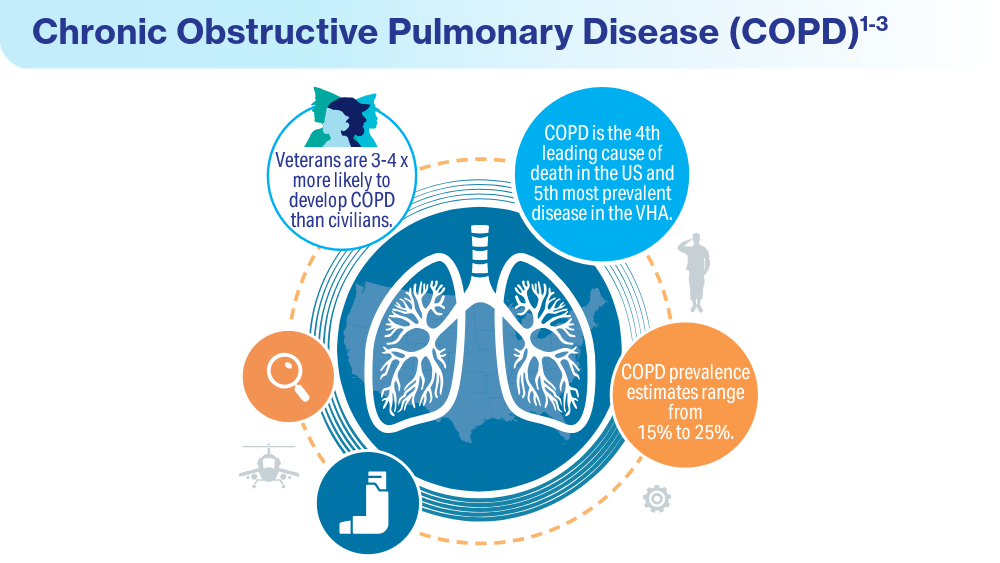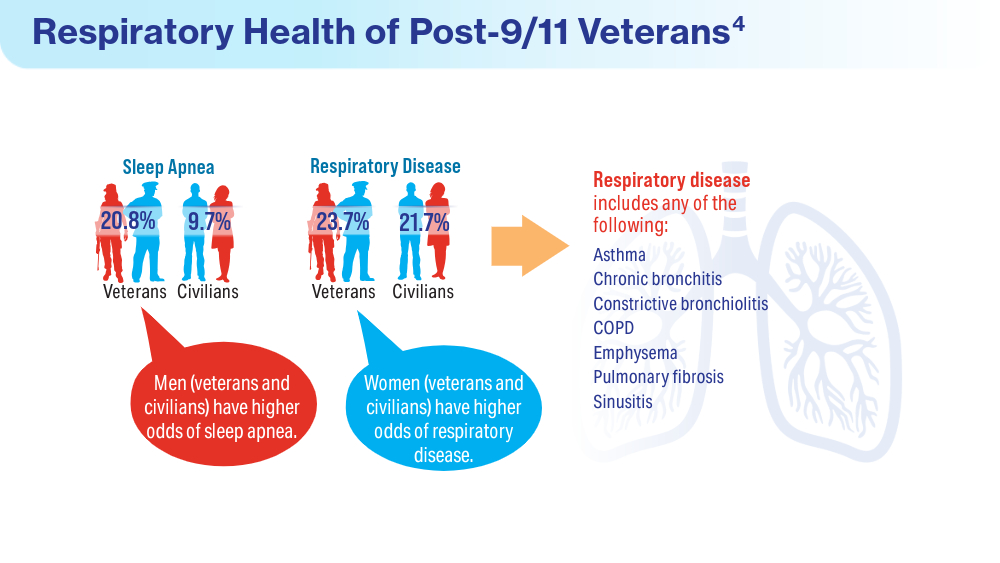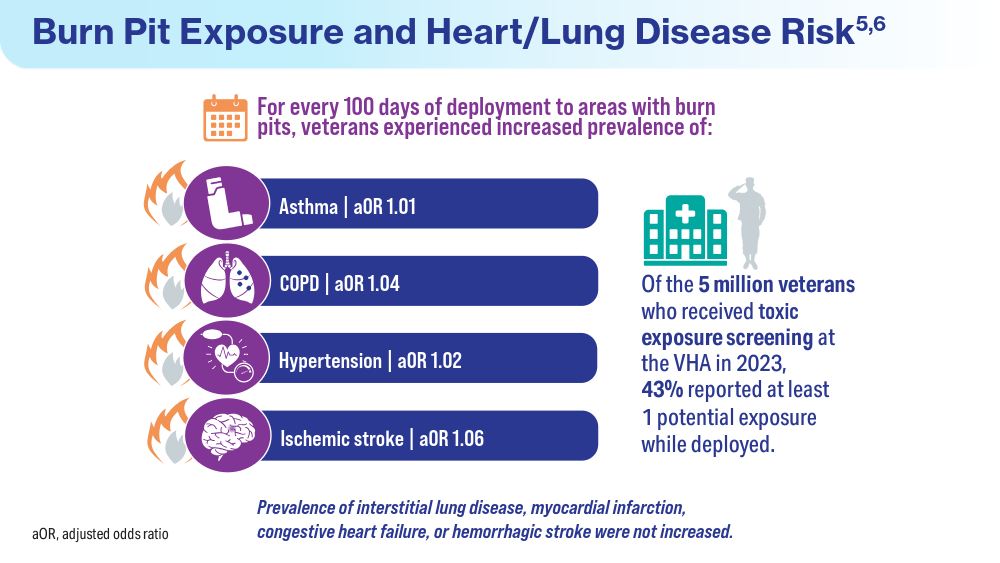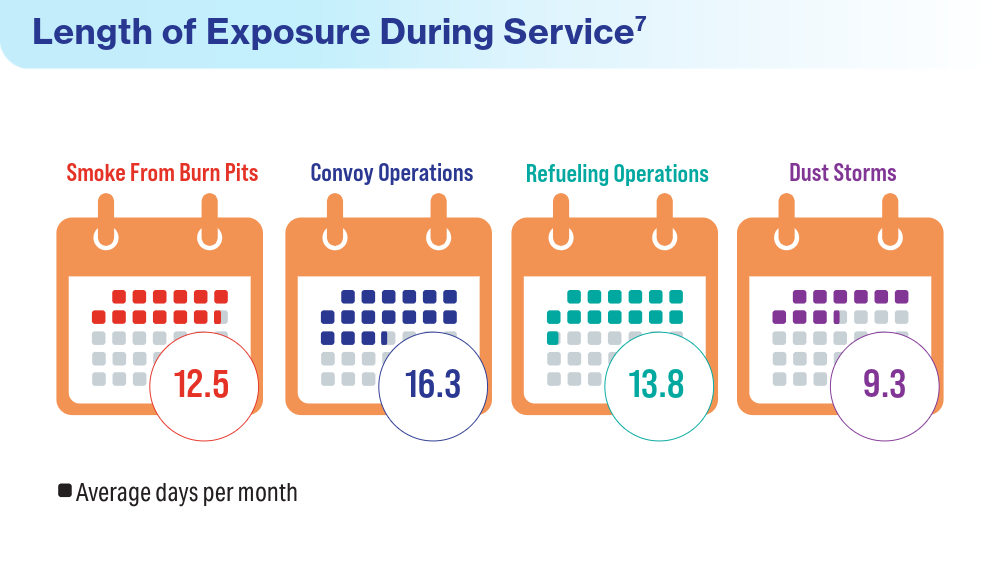Click to view more from Federal Health Care Data Trends 2024.
Data Trends 2024: Respiratory Health
Reviewed by:
Stephanie R. Knudson, MD
Associate Professor, Department of General Internal Medicine
University of Colorado School of Medicine;
Staff Physician, Internal Medicine/Primary Care
VA Rocky Mountain Regional Medical Center
Aurora, CO
Dr. Knudson has disclosed no relevant financial relationships.

1
-

-

Nearly 70% of veterans returning from post-9/11 service reported a respiratory illness during their deployment.
-

A study of 459,381 veterans deployed between 2001 and 2011 evaluated the potential long-term health impacts of open burn pit exposure. Median follow-up time from end of deployment was 11 years.
-

Data are from an analysis of > 107,000 veterans in the VA’s Airborne Hazards and Open Burn Pit Registry (AHOBPR) who served in the Middle East after 1990 or in Southwest Asia after 2001. All participants reported experiencing shortness of breath within 12 months before registering with the AHOBPR, and had no diagnosed lung conditions before enlisting. Other daily exposures included engine maintenance (9.1 days), construction (5.4 days), and pesticides (9.3 days).
